Cell Cycle/Checkpoint
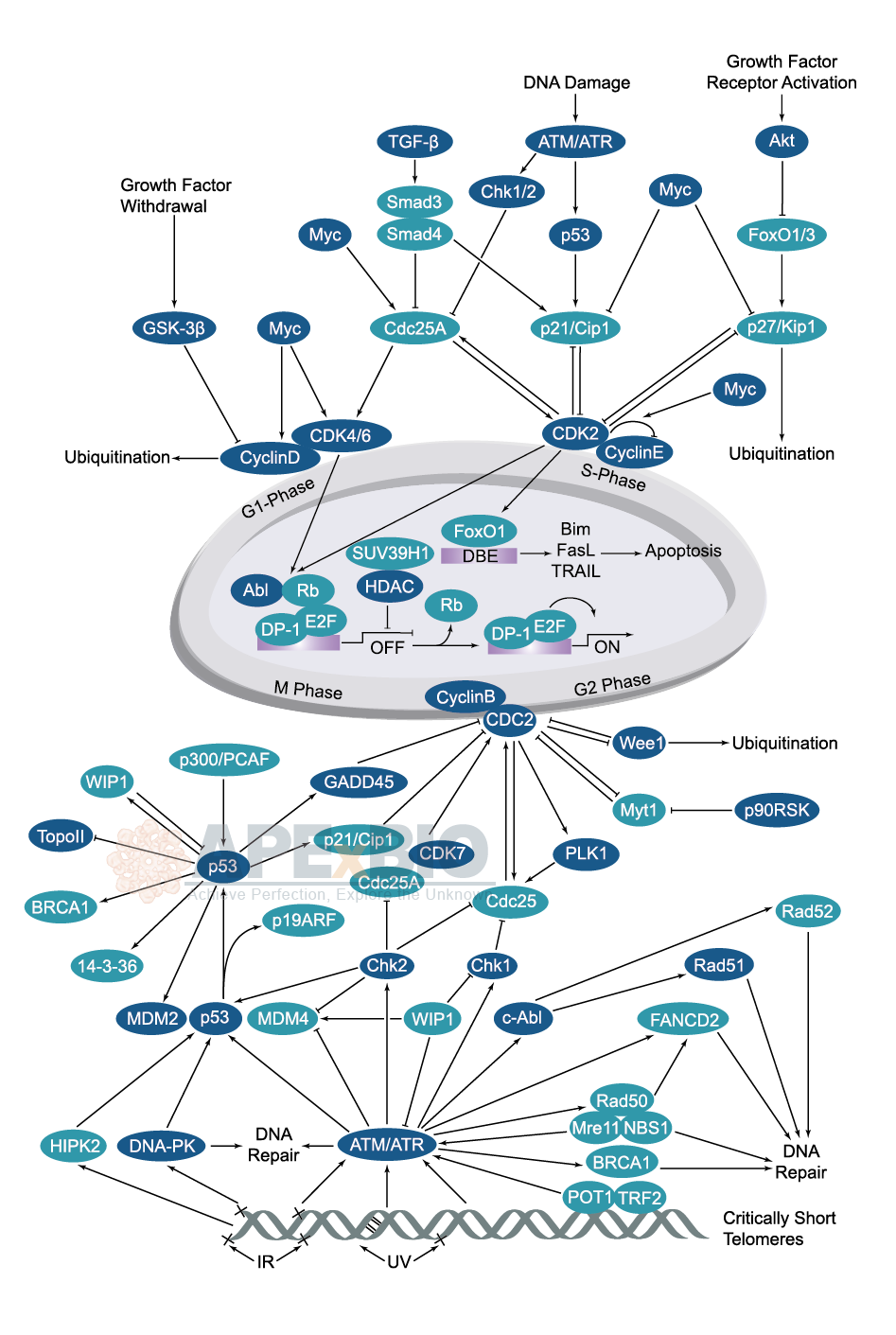

The cell cycle is consisted of 4 main phases: Gap 1 (G1), DNA replication (S), Gap 2 (G2), and mitosis (M). There are “checkpoints” mechanism regulates the transition between these phases, at the G1/S boundary, in the S-phase and during G2/M phases. Cell can only pass through these checkpoints when signaling factors are activated and free of DNA damage. Important proteins that control cell cycle events and checkpoints are cullins, cyclins, cyclin-dependent kinases (Cdks), p53 and their inhibitors etc. Cdks family (Cdk2, Cdk3, Cdk4 and Cdk6) are Ser/Thr kinases that regulate cell cycle progression in association with cyclin binding partners (cyclin D, cyclin E and cyclin A) during all four phases. p53 halts the cell cycle if the DNA is damaged and allowing time for DNA repair to progress; it can also initiate apoptosis if DNA damage is too severe to be repaired.
-
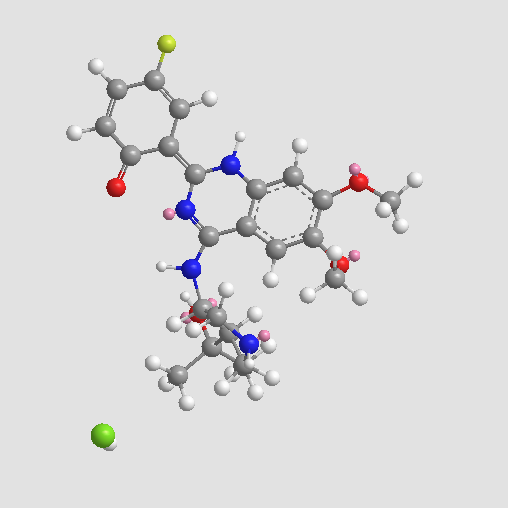 A3292 CCT241533 hydrochlorideSummary: CHK2 kinase inhibitor, novel
A3292 CCT241533 hydrochlorideSummary: CHK2 kinase inhibitor, novel -
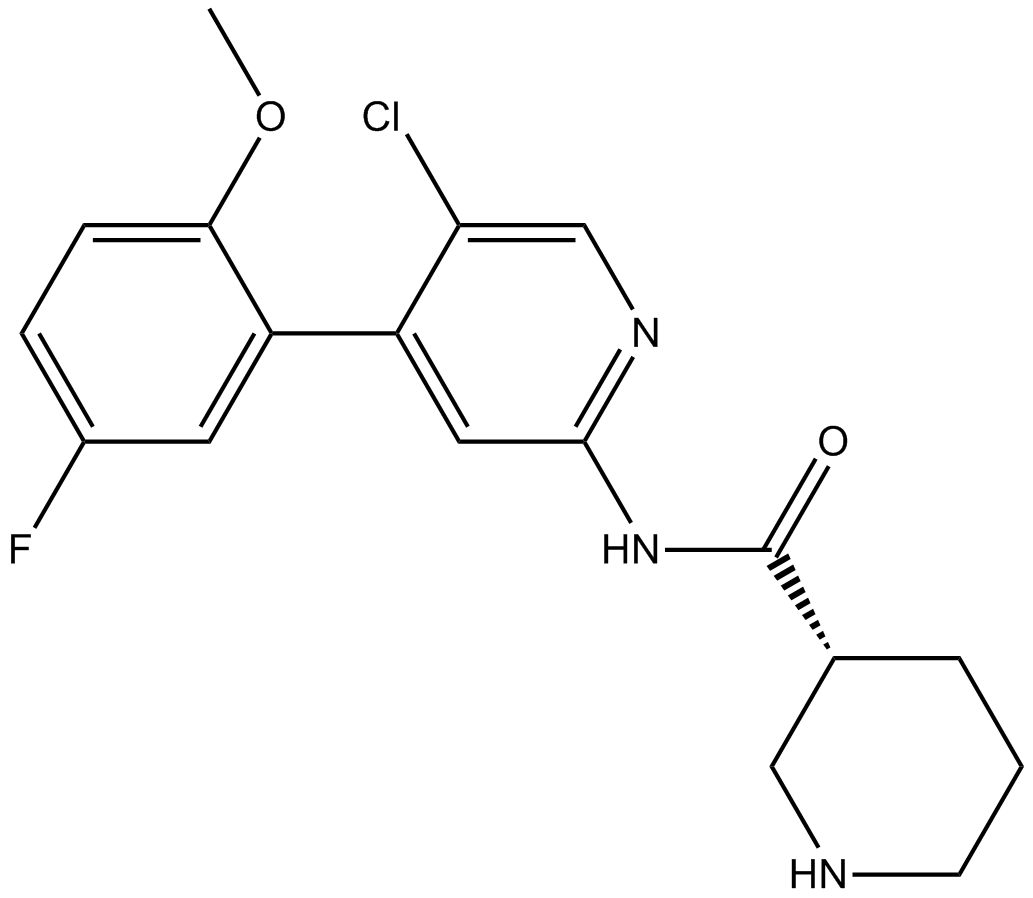 A3293 CDK inhibitor IISummary: CDK inhibitor
A3293 CDK inhibitor IISummary: CDK inhibitor -
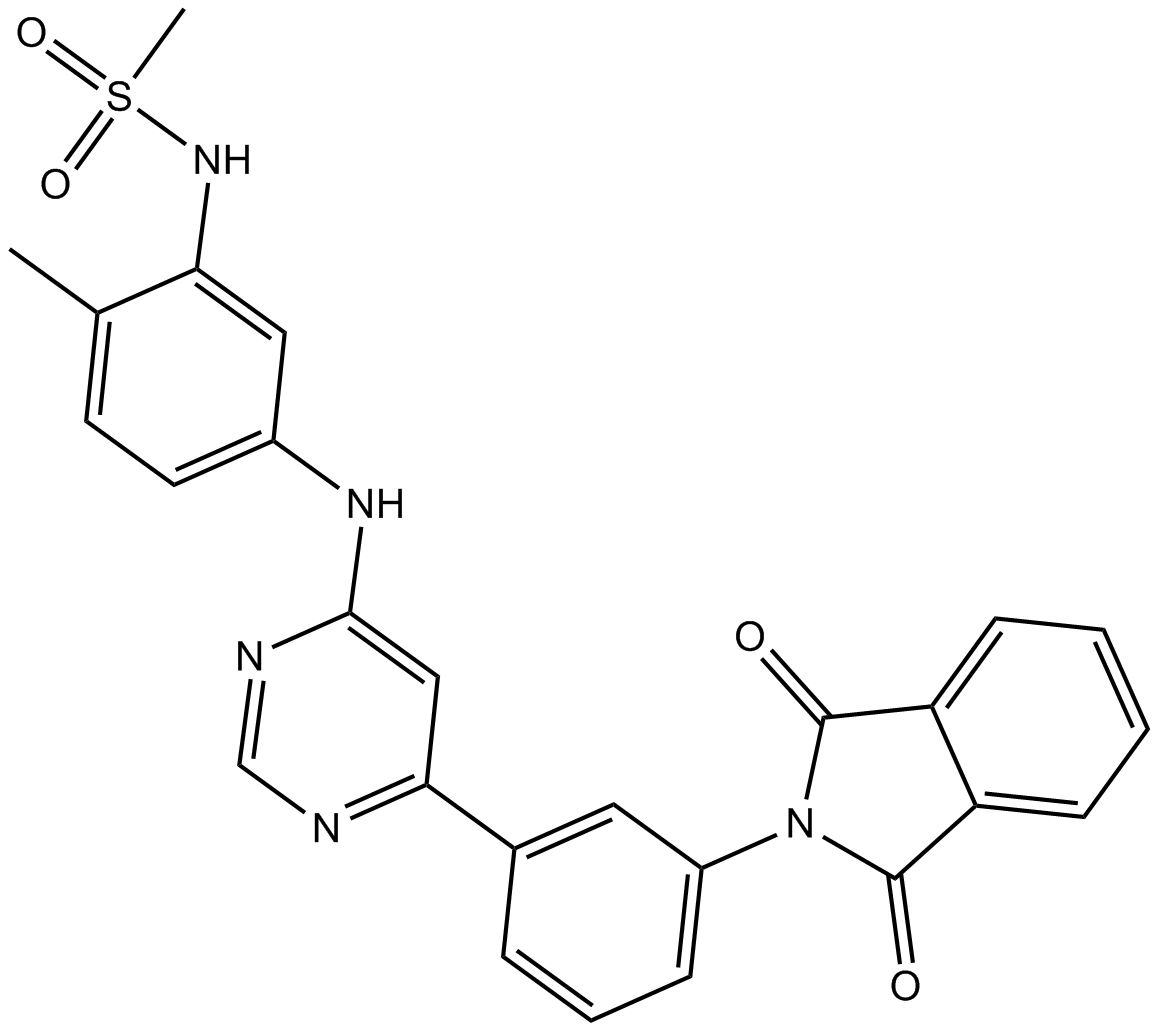 A3294 CDK9 inhibitor1 CitationTarget: Cyclin-Dependent KinasesSummary: CDK9 inhibitor
A3294 CDK9 inhibitor1 CitationTarget: Cyclin-Dependent KinasesSummary: CDK9 inhibitor -
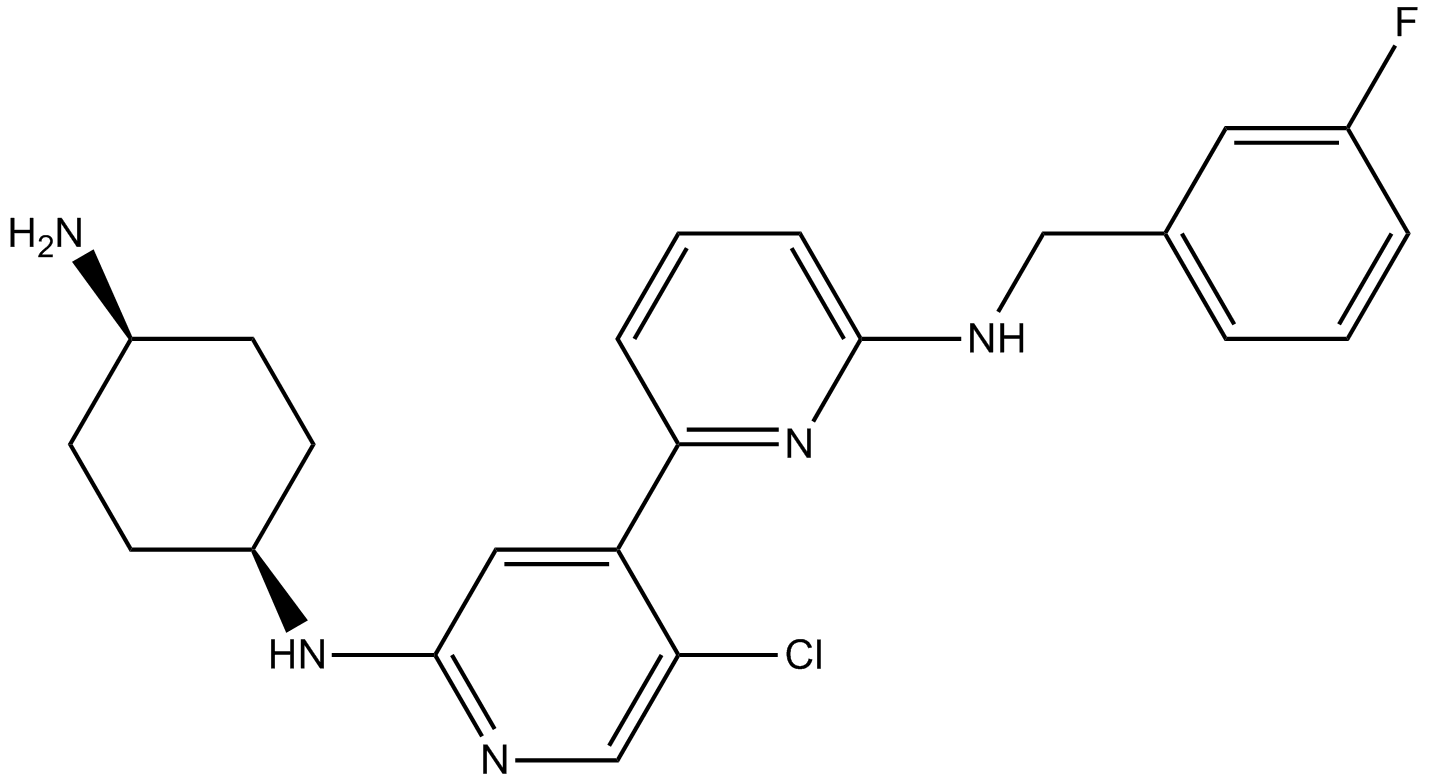 A3295 CDK9 inhibitor 2Summary: CDK9 inhibitor
A3295 CDK9 inhibitor 2Summary: CDK9 inhibitor -
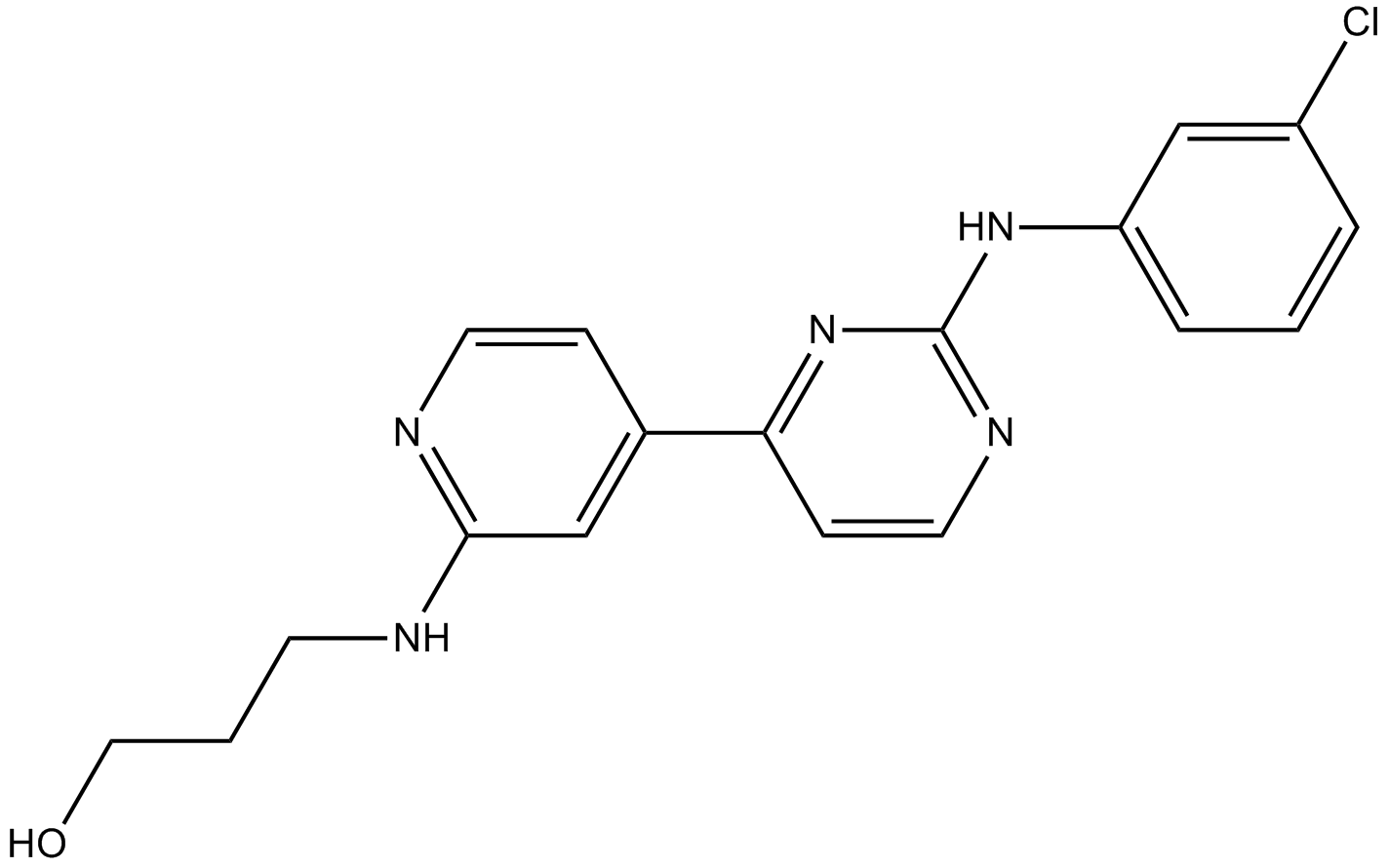 A3303 CGP60474Summary: CDKs and PKC inhibitor, potent
A3303 CGP60474Summary: CDKs and PKC inhibitor, potent -
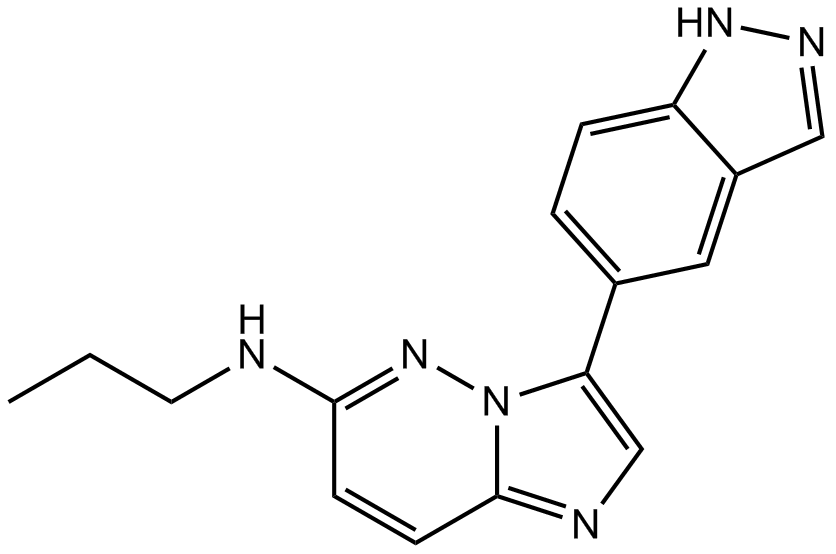 A3309 CHR-6494Summary: Haspin inhibitor,potent ands selective
A3309 CHR-6494Summary: Haspin inhibitor,potent ands selective -
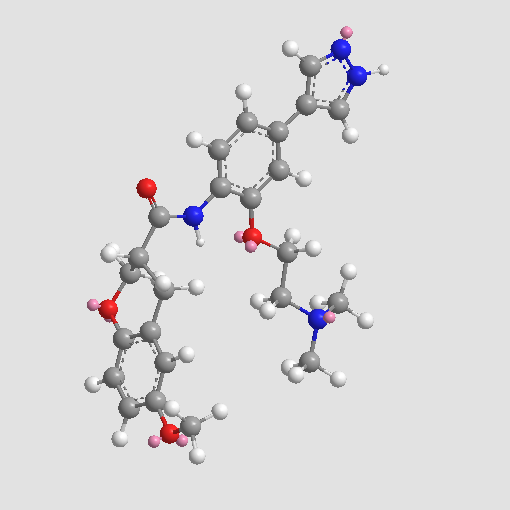 A3310 chroman 11 CitationSummary: ROCK II inhibitor, highly potent and selective
A3310 chroman 11 CitationSummary: ROCK II inhibitor, highly potent and selective -
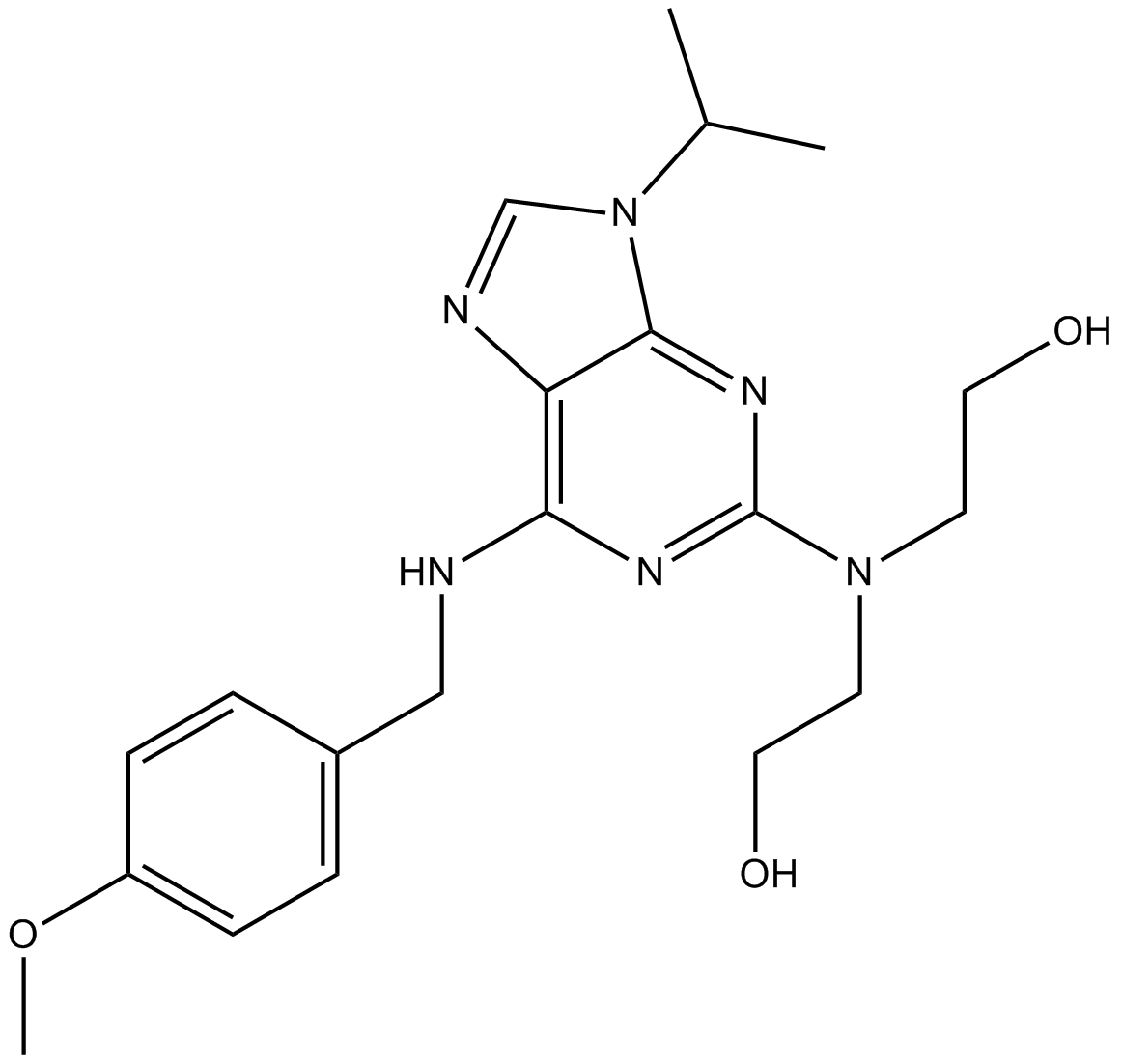 A3336 CVT-3131 CitationTarget: Cyclin-Dependent KinasesSummary: Cdk2 inhibitor
A3336 CVT-3131 CitationTarget: Cyclin-Dependent KinasesSummary: Cdk2 inhibitor -
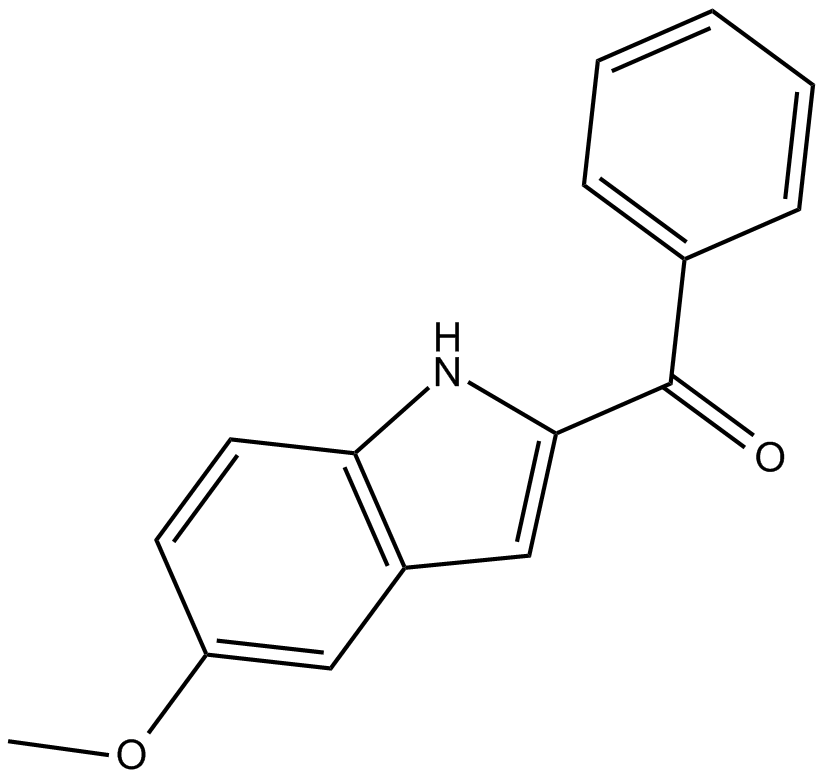 A3344 D-64131Summary: Tubulin polymerization inhibitor
A3344 D-64131Summary: Tubulin polymerization inhibitor -
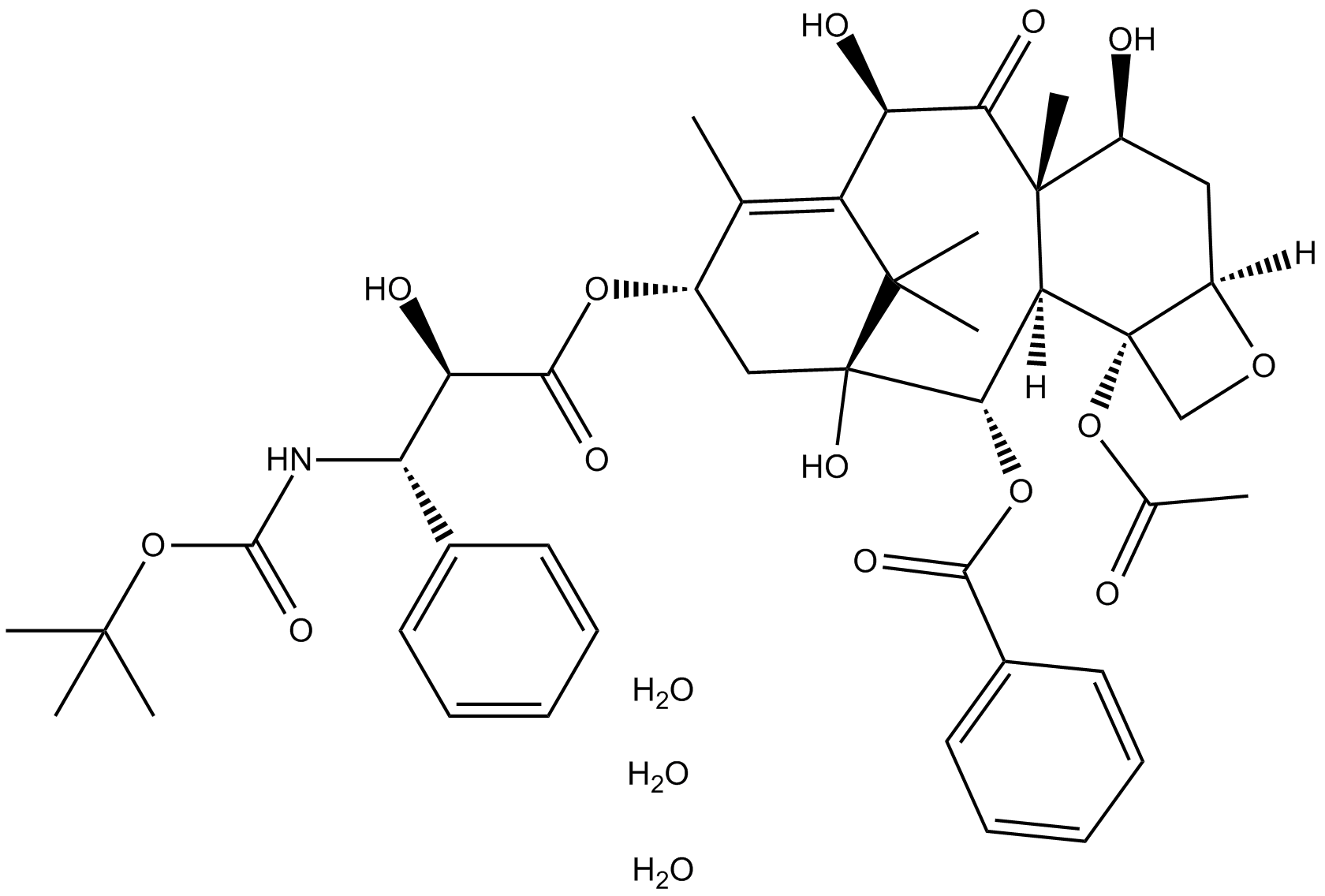 A3370 Docetaxel TrihydrateSummary: Depolymerisation of microtubules inhibitor
A3370 Docetaxel TrihydrateSummary: Depolymerisation of microtubules inhibitor


